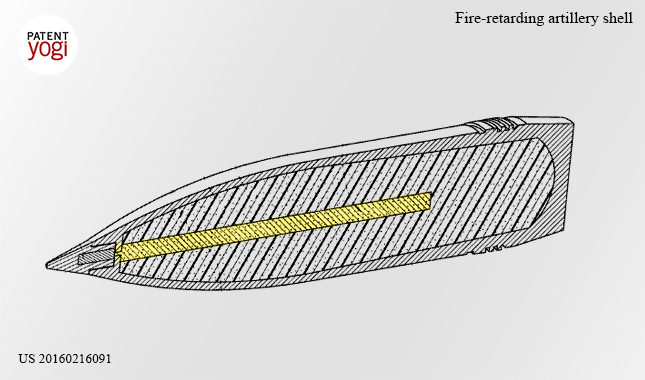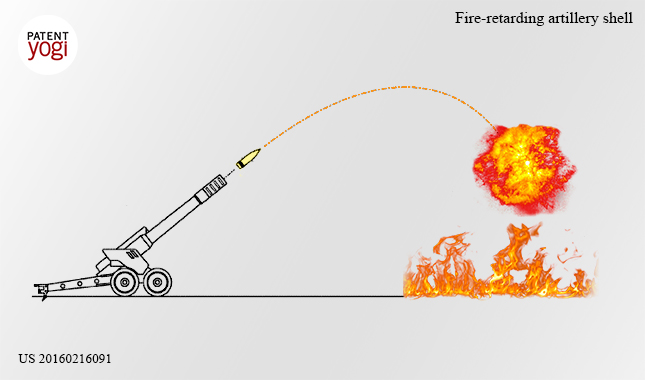[bmtextbox type=”alert” title=”In Brief” image=”0″]Boeing have designed and patented an artillery shell which is fired (via a gun) near the fire to retard the fire.[/bmtextbox]
Forest fires are an annual phenomenon in several states of the US. In 2017, at one point of time, around two million acres of land were burning across various regions of the US, and 1.75 billion dollars have been spent in this fiscal year to keep forest fires in check.
Further, forest fires are different from other fires in multiple ways. Forest fires are typically larger in size to other files, and the speed at which they grow is also greater. The forest fires are also capable of changing direction suddenly. So they are often very deadly.
Generally, aircrafts like helicopters or airplanes are used to fight forest fires by delivering fire retarding material. But, these often deliver the material at a low rate which often makes them inadequate to control forest fires.
It has been determined (based on the National Wildfire Coordinating Group (NWCG) Incident Response Pocket Guide) that “in order to establish an aircraft-delivered firebreak for a relatively small 28 acre fire, it would take approximately 7.6 hours to deliver a required 6,469 gallons of fire-retarding material. During the 7.6 hour time period, the relatively small 28 acre fire has potential to grow and burn an estimated 100 acres of land.” It is evident that a better alternative is required to combat forest fires. And Boeing is working on just the thing needed.
Technical Details
Boeing has designed and patented a fire-retarding artillery shell. The artillery shell comprises of a shell and a cavity that houses fire retarding material. A trigger is also included in the shell which is configured to release the fire retarding material. The artillery is fired out of a gun.
Once fired, the trigger releases the fire retarding material out of the cavity and into the fire to “retard, reduce, or extinguish the fire”. The trigger may also make use of a fuse and explosive material inside the artillery to break apart the external surface of the cavity and release the fire retarding material.
The fire retarding material may be released into the fire, or ahead to the advancing fire to retard, and reduce it. Further, according to Boeing, “the retarding of the fire can be achieved by firing a concentration barrage, a creeping barrage, rolling barrage, or a block barrage. The gun delivers the fire-retarding material with high accuracy, at a high rate of delivery, at a reduced cost over typical fire-fighting methods such as airplane or helicopter release or ground-based fire fighters. The fire-retarding material may be delivered continuously or intermittently for long durations, regardless of darkness, weather conditions, or intensity of the fire with reduced risk to those fighting the fire. Some guns may deliver the fire-retarding material within 15 feet of a target at a 15 mile range.”
Thus, even firefighters may not need to go near forest fires to help control them. Studies conducted by Boeing go on to prove the effectiveness of the invention.
After the artillery shell breaks apart, the fragments of the artillery shell are environmentally friendly and degrade at a rate sufficient to avoid harm to the environment.
This invention may potentially save properties and land worth millions of dollars and indeed prove to be a lifesaver for thousands of people.
Publication Number: US20160216091 A1
Patent Title: Fire-retarding artillery shell
Publication date: 28 Jul 2016
Filing date: 13 Feb 2014
Priority date: 13 Feb 2014
Inventors: Todd W. Erickson, Sina Golshany, Shelly A. Songstad, Adriana W. Blom, Jacqueline A. Artis, Christopher R. Holtorf, Natalie Daughtry, Less «
Original Assignee: The Boeing Company



